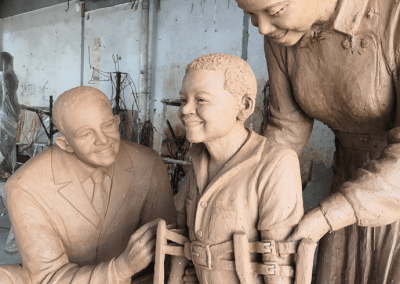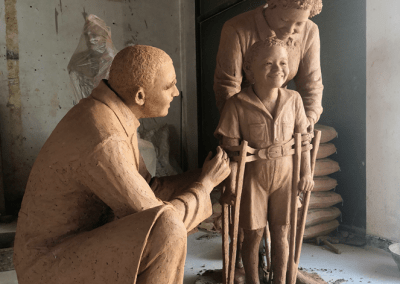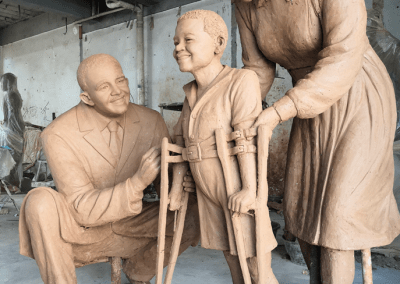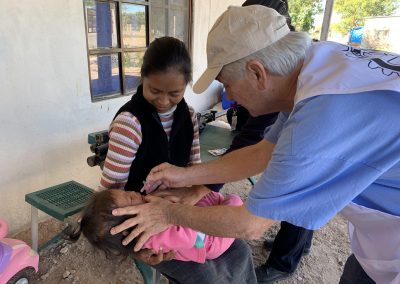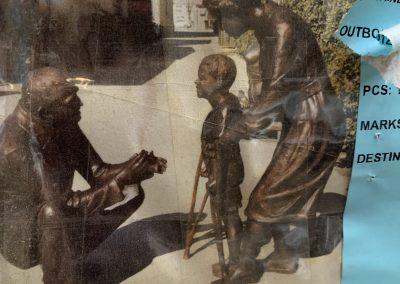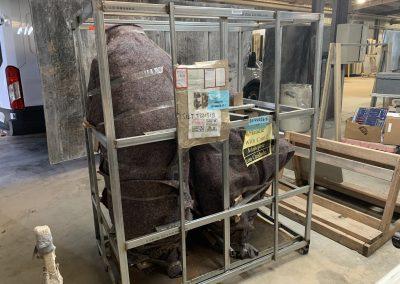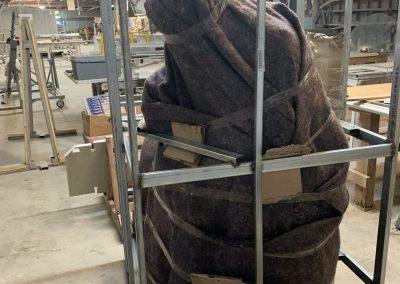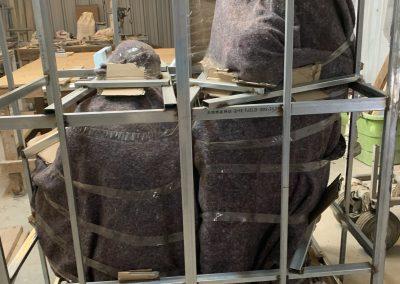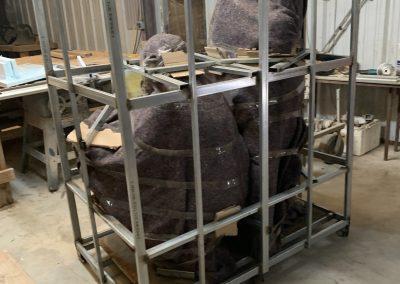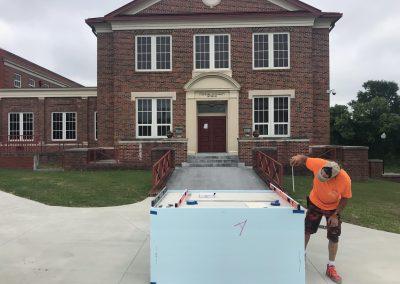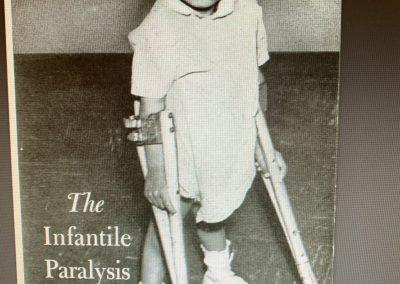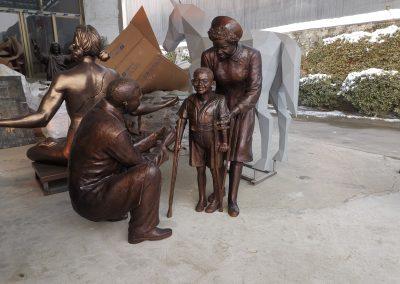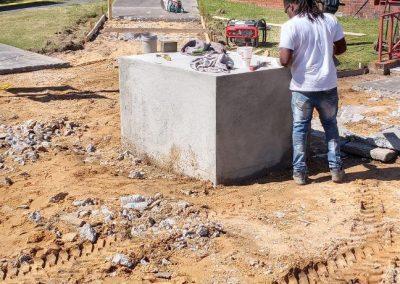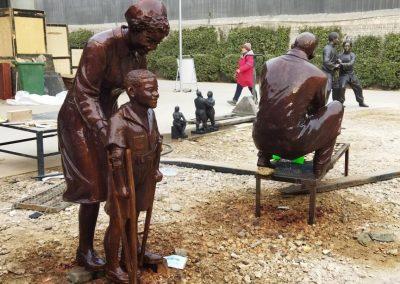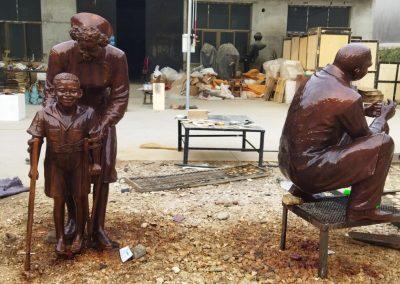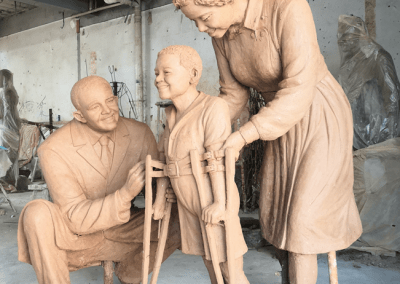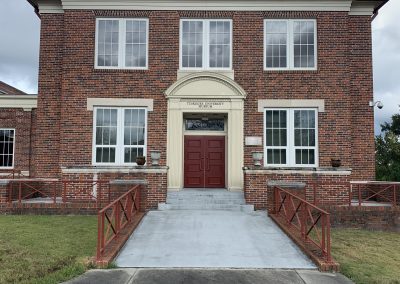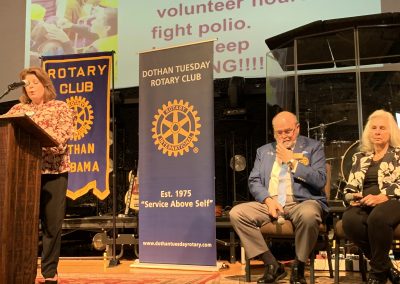The Tuskegee Polio Recognition Project was featured in the June 2023 issue of the Rotary International magazine. The link to this article is: Rotary – June 2023 – POLIO’S ‘hidden figures’
The Tuskegee Polio Recognition Project
Events Honor Tuskegee Institute for Pioneering Work on the Cure for Polio
Today, August 4, 2022 Rotary District 6880 took the final steps in a years-long commitment to honor achievements at Tuskegee Institute that contributed to the eradication of polio.
Rotary District 6880 with assistance from the Tuskegee University Archives Department staff, coordinated a two-pronged event associated with the Tuskegee Polio Recognition Project. This morning an invitation-only luncheon was held on the Tuskegee University campus, sponsored by the Macon County Economic Development Authority. The guest speaker was Judge Myron H. Thompson, an esteemed federal judge who was stricken with polio as a child growing up in Tuskegee, which is his hometown.
Immediately after the luncheon, a sculpted monument was unveiled at John A. Kenny Hall. The monument consists of life-size bronze statues depicting Dr. John W. Chenault, nurse Warrena A. Turpin and a young polio patient named Gordon Stewart. These medical professionals represent the spirit of excellence that was prevalent at the Tuskegee Infantile Paralysis Center where Black doctors, researchers and support personnel conducted significant work that was critical to winning the war against polio.
Tuskegee has a rich legacy concerning polio. Basil O’Connor, Chairman of the Tuskegee Institute Board of Trustees was instrumental in creating the National Foundation for Infantile Paralysis, which became the March of Dimes. In 1939, efforts by O’Connor led to the first and only grant for a new facility to treat African American children. Located at the John A. Andrew Memorial Hospital (1892-1987) on the campus of Tuskegee Institute, the Infantile Paralysis Center admitted its first patient in 1941 and was the only such center of its kind which provided care for African American children with polio until closing in 1975.
In 1985, Rotary International and its partners made the commitment to eradicate polio from the face of the earth. In that year, on average more than 400,000 children were stricken with crippling effects from the poliomyelitis virus. From 125 countries in 1985 down to two countries in 2022 reporting active polio cases and the number at less than 20 cases, the world is “this close” to the full obliteration of this horrible disease.
In addition to guest speaker, Judge Myron H. Thompson, other speakers at today’s events included Bruce McNeal, Co-Chair of the Tuskegee Polio Recognition Project; Graham Champion, Co-Chair of the Tuskegee Polio Recognition Project; Dr. Adell Goodwin, Rotary District 6880, District Governor 2022-2023; John Germ, Past Rotary International President; Dr. Charlotte Morris, President of Tuskegee University; Dana Chandler, Archivist at Tuskegee University; Rahni Jenkins, an official with the March of Dimes and Susan Wilhelm, representing the office of Alabama Governor Kay Ivey.
Funding for this project has come from many donors who wish to help Rotary 6880 honor those who were on the frontline in the fight against the dreaded polio disease while simultaneously crediting one of the few centers that treated the Black community at the time polio was raging.
Tuskegee RI Polio Video #1
Rotary International “End Polio Now” videos produced in Tuskegee Alabama CLICK HERE
Tukegee RI Polio Video #2
Rotary International “End Polio Now” video produced in Tuskegee Alabama CLICK HERE
Tuskegee RI Polio Video #3
Rotary International “End Polio Now” video produced in Tuskegee Alabama CLICK HERE
Tuskegee Institue and RI Polio Article
Rotary International magazine article about Tuskegee Institute and Polio CLICK HERE
Tuskegee RI Polio Video #4
Rotary International “End Polio Now” video produced in Tuskegee Alabama CLICK HERE
Infantile Paralysis Fight at Tuskegee
InfParFightTuskegeeThis informative document details the important work done at Tuskegee University in Tuskegee, Alabama in the fight to treat the black population who were inflicted by the poliomyelitis virus. It also includes the formation of the Tuskegee Infantile Paralysis Center located adjacent to the John A. Andrews Memorial Hospital. This is truly an amazing story. Read on.
The Tuskegee Polio Story Continues
This section includes a copulation of articles that tells “the rest of the story.” It includes the establishment of the Tuskegee Infantile Paralysis Center, the story of Dr. Charles Haskin Bynum, information on the John A. Andrew Memorial Hospital, an Historical Perspective on Polio among the Black population, and details on the HELA Cell research conducted at Tuskegee University
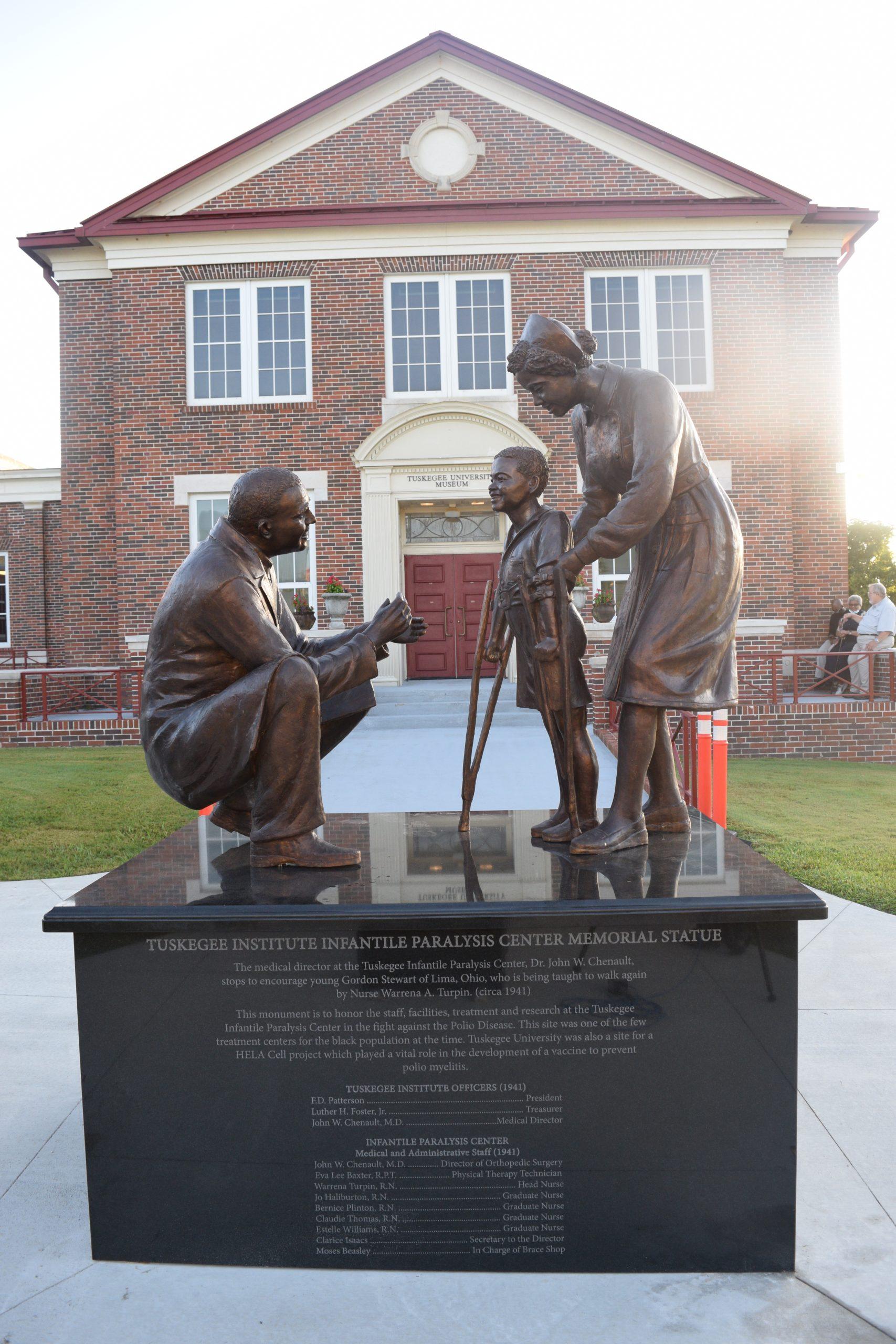
Picture Archives - Tuskegee Polio Recognition Project
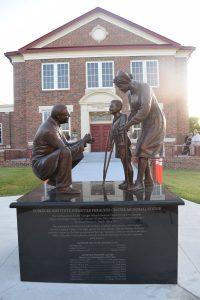
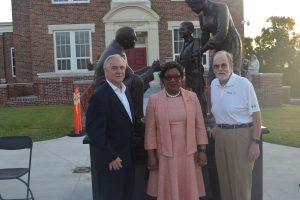
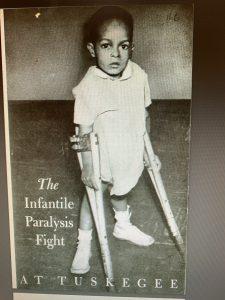
embed]https://magazine.rotary.org/rotary/june_2023/MobilePagedArticle.action?articleId=1883201&utm_source=newsletter&utm_medium=email&utm_campaign=TXTHE6230530002&utm_content=gtxcel#articleId1883201[/embed]
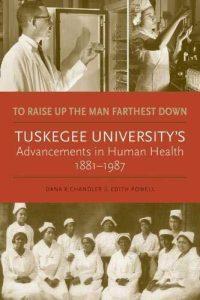
Pictures of Tuskegee Polio Recognition Project Process

